Indigenous Governance Database
Constitutions
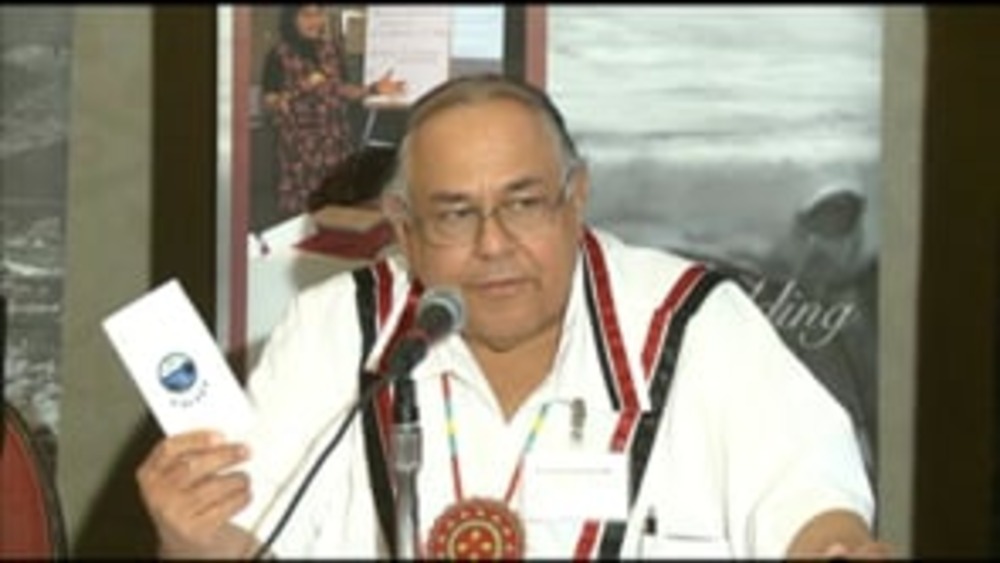
Frank Ettawageshik: Reforming the Little Traverse Bay Bands of Odawa Constitution: What We Did and Why
Frank Ettawageshik, Former Chairman of the Little Traverse Bay Bands of Odawa Indians (LTBBO), discusses how LTBBO came to develop a new constitution and system of government, the key components of the LTBBO constitution, and how the new LTBBO constitution differs in fundamental ways from the old…
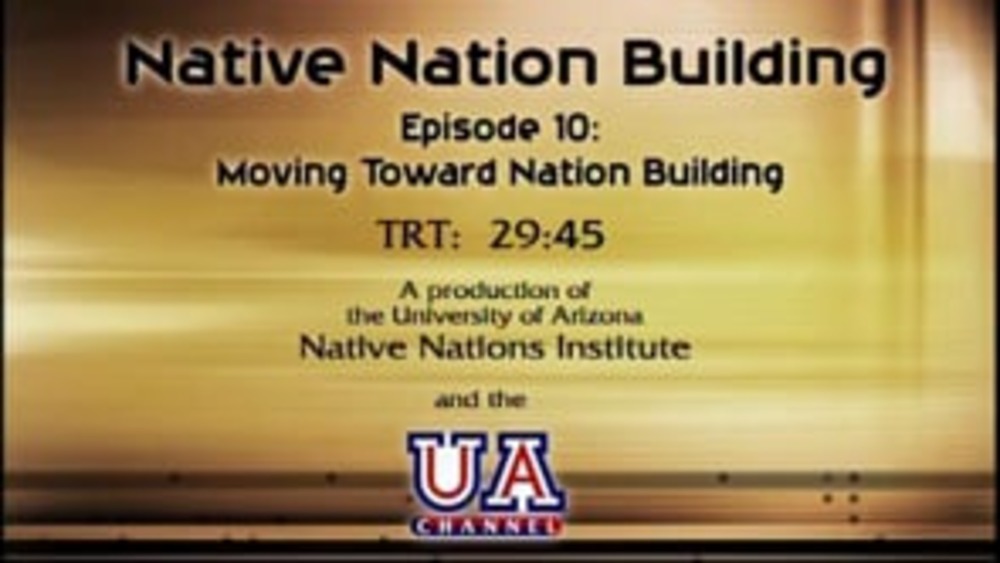
Native Nation Building TV: "Moving Towards Nation Building"
Manley A. Begay, Jr. and Stephen Cornell contrast the two basic approaches to Indigenous governance -- the standard approach and the nation-building approach -- and discusses how a growing number of Native nations are moving towards nation building. It provides specific examples of how implementing…
Regis Pecos: The Why of Making and Remaking Governing Systems
Former Cochiti Pueblo Governor Regis Pecos shares his thoughts about the ultimate purpose of constitutions, governments and governance from a Pueblo perspective, and argues that constitutional reform presents Native nations with a precious opportunity to reclaim and reinvigorate their cultures and…
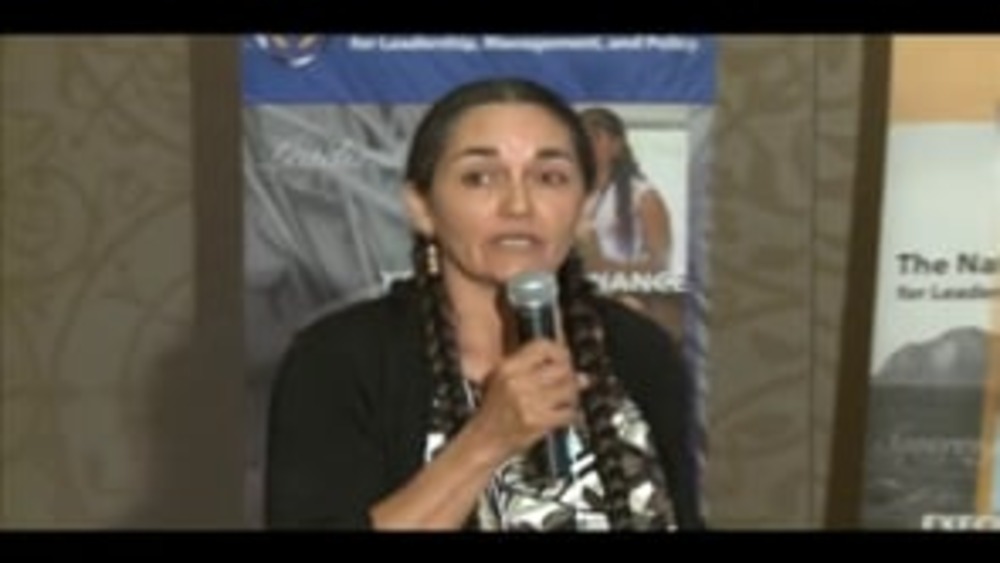
Gwen Phillips: Reforming the Ktunaxa Nation Constitution: What We're Doing and Why
Gwen Phillips, Director of Corporate Services and Governance Transition for the Ktunaxa Nation, discusses how Ktunaxa is using the British Columbia treaty process to reconceive and restructure its governance system from the ground up in order to revitalize Ktunaxa culture, language and core values…
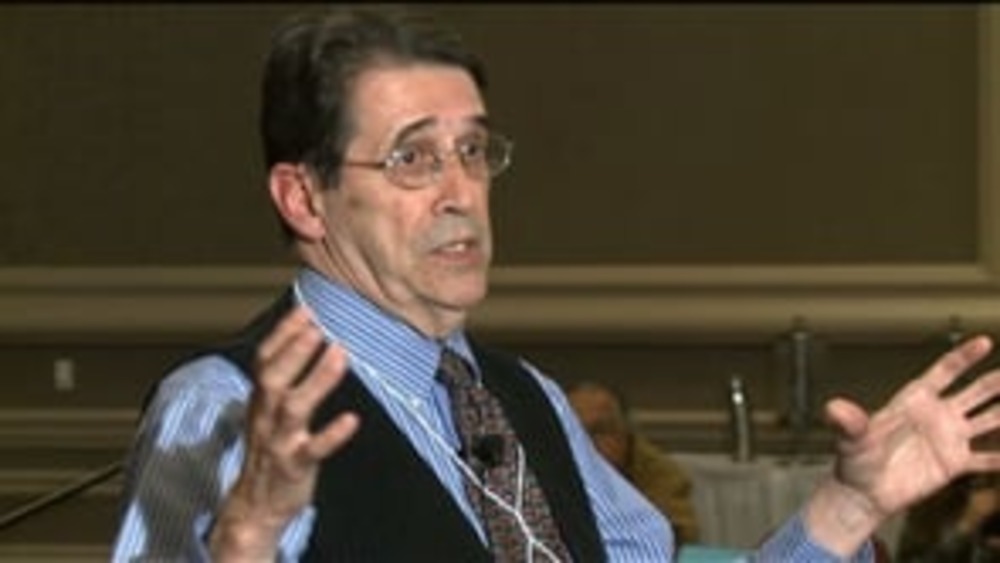
Frank Pommersheim: A Key Constitutional Issue: Dispute Resolution
University of South Dakota Professor of Law Frank Pommersheim discusses the key constitutional issue of dispute resolution and presents three cases demonstrating how tribes are endowing their constitutions with legitimacy through the careful, thoughtful resolution of disputes.
Taylor Keen: The Disenfranchisement of the Cherokee Freedmen: Assertion or Abuse of Sovereignty?
Taylor Keen (Cherokee), a former member of the Cherokee Nation Council, discusses the stand he took against his nation's recent decision to disenfranchise the Cherokee Freedman. He offers a convincing argument against the move, explaining that taking away the citizenship rights of the Freedmen…
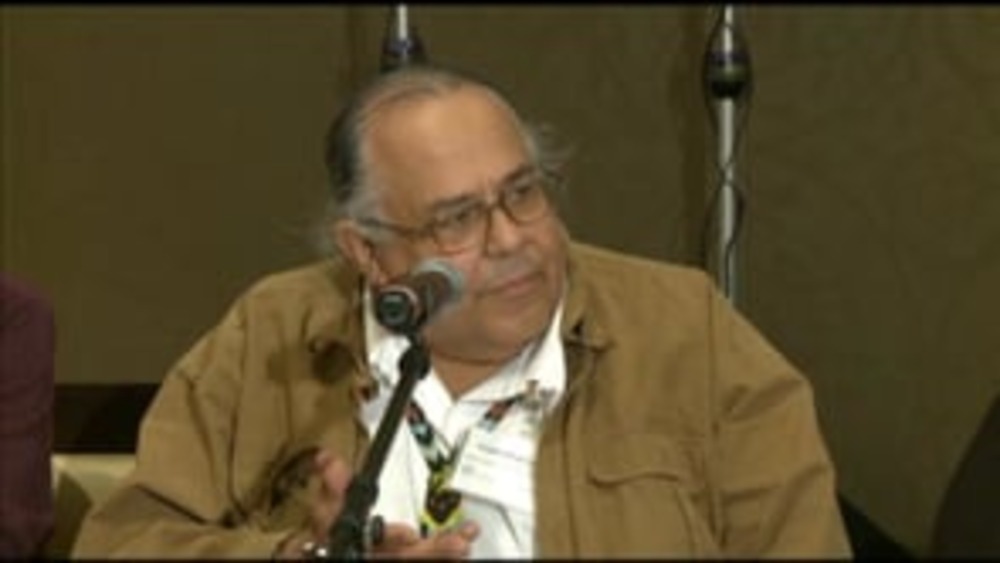
Constitutional Reform: A Wrap-Up Discussion (Q&A)
NNI "Tribal Constitutions" seminar presenters, panelists and participants Robert Breaker, Julia Coates, Frank Ettawageshik, Miriam Jorgensen, Gwen Phillips, Ian Record, Melissa L. Tatum and Joan Timeche field questions from the audience about separations of powers, citizenship, blood quantum and…
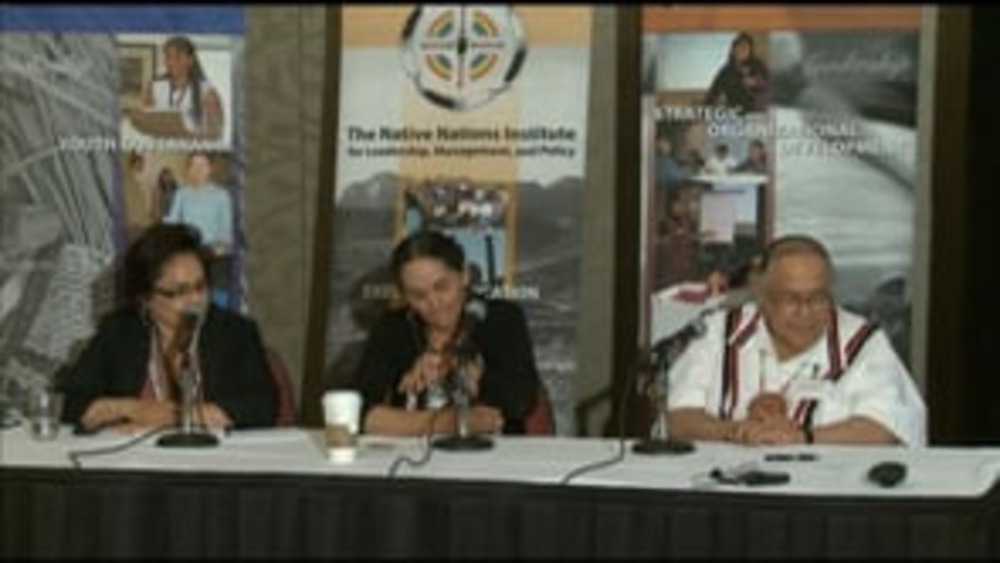
Frank Ettawageshik and Gwen Phillips: Reforming Our Nations' Constitutions: What We Did and Why (Q&A)
Frank Ettawageshik, former Chairman of the Little Traverse Bay Bands of Odawa Indians, and Gwen Phillips, Ktunaxa Nation Director of Corporate Services and Governance Transition, field questions from the audience about their presentations detailing how their nations either reformed or are in…
Todd Hembree: A Key Constitutional Issue: Separations of Powers
Cherokee Nation Attorney General Todd Hembree discusses the critical role of separations of powers in effective Native nation governance, and provides an overview of how the Cherokee Nation instituted an array of separations of powers in the development of their new constitution, which was ratified…
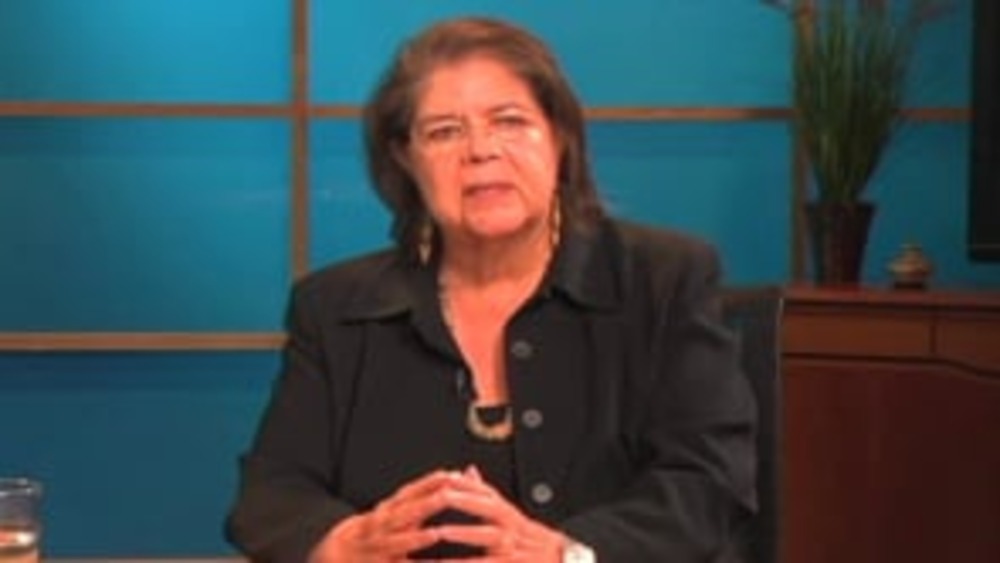
Wilma Mankiller: Governance, Leadership and the Cherokee Nation
As part of its ongoing interview series "Leading Native Nations," the Native Nations Institute (NNI) interviewed Wilma Mankiller, the late and former Chief of the Cherokee Nation, in September 2008. In the interview, she discussed her compelling personal story as well as the challenges the Cherokee…
Joan Timeche and Joseph P. Kalt: The Process of Constitutional Reform: Key Issues and Cases to Consider
Joan Timeche and Joseph P. Kalt share two stories of constitutional reform processes undertaken by Native nations and discuss what factors spurred or impeded the ultimate success of those efforts.
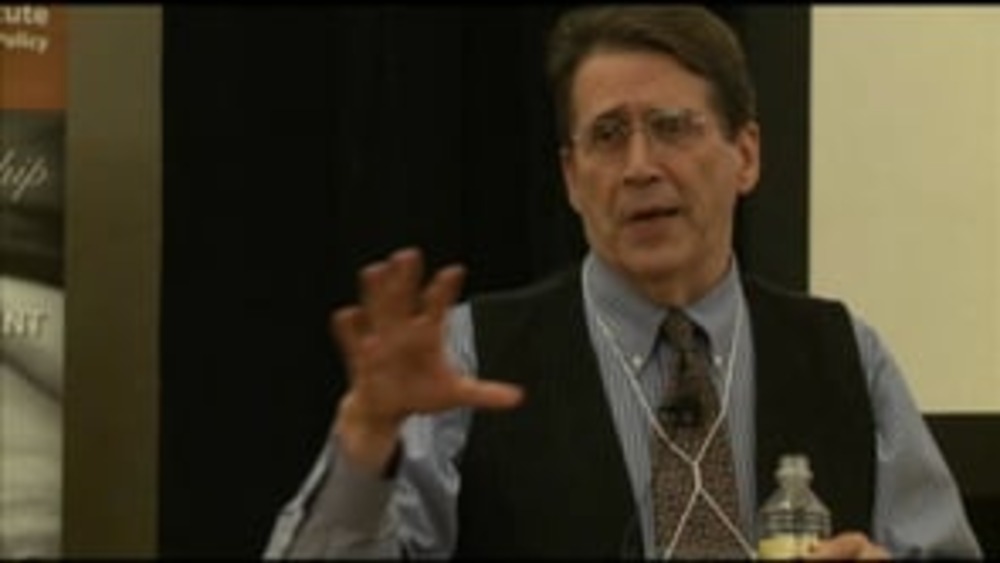
Frank Pommersheim: A Key Constitutional Issue: Dispute Resolution (Q&A)
University of South Dakota Professor of Law Frank Pommersheim fields audience questions about the importance of civic engagement to constitutional reform, removing the Secretary of Interior Approval clause from tribal constitutions, and other important topics.
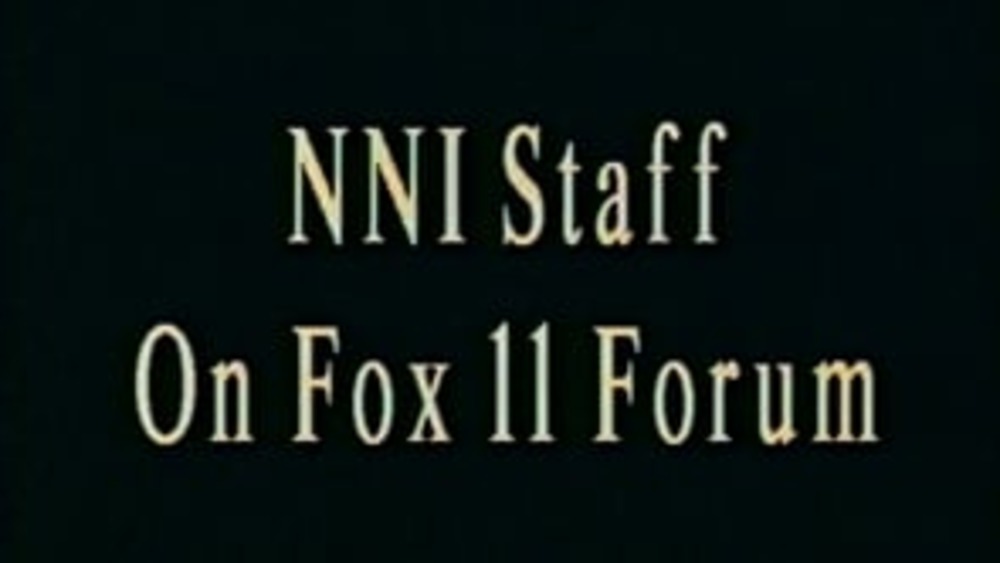
Native Nation Building TV: FOX News Segment on Native Nation Building
Joan Timeche, Stephen Cornell and Ian Record with the Native Nations Institute at The University of Arizona discuss the "Native Nation Building" television and radio series and the research findings at heart of the series in a televised interview in January 2007.This video resource is featured on…
Julia Coates: The Process of Constitutional Reform: What the Cherokee Nation Did and Why
Cherokee Nation Councilor Julia Coates presents an overview of the constitutional history of the Cherokee Nation, and chronicles the process the Cherokee Nation followed to reform its constitution in 1999.
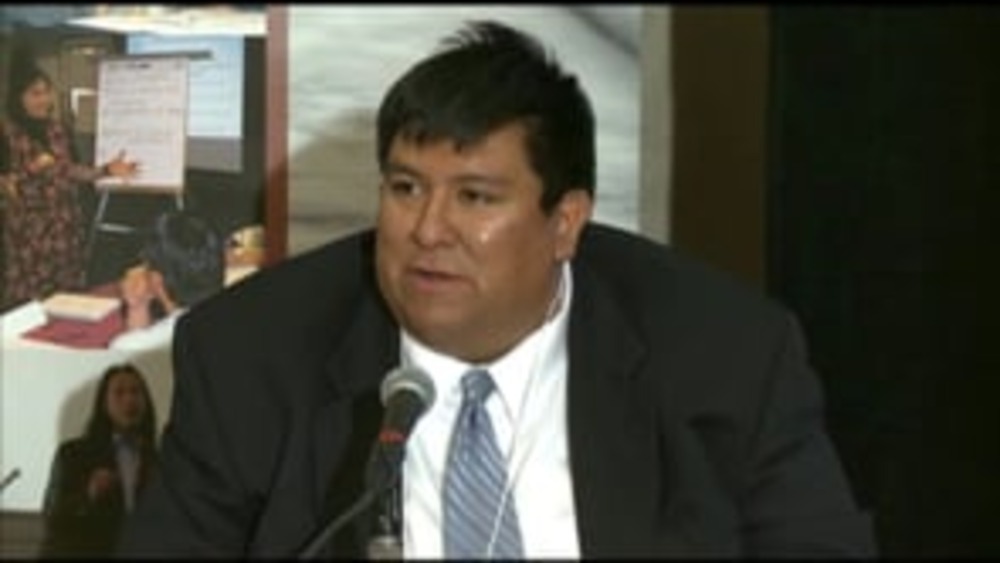
Anthony Hill: The Process of Constitutional Reform: What Gila River Indian Community Did and Why
Formerly the Chairman of the Gila River Tribal Constitution Task Force, Anthony Hill describes the process that the Gila River Indian Community has engaged in as it undertakes reforming its constitution and system of government. Hill also offers some tips and strategies other Native nations should…
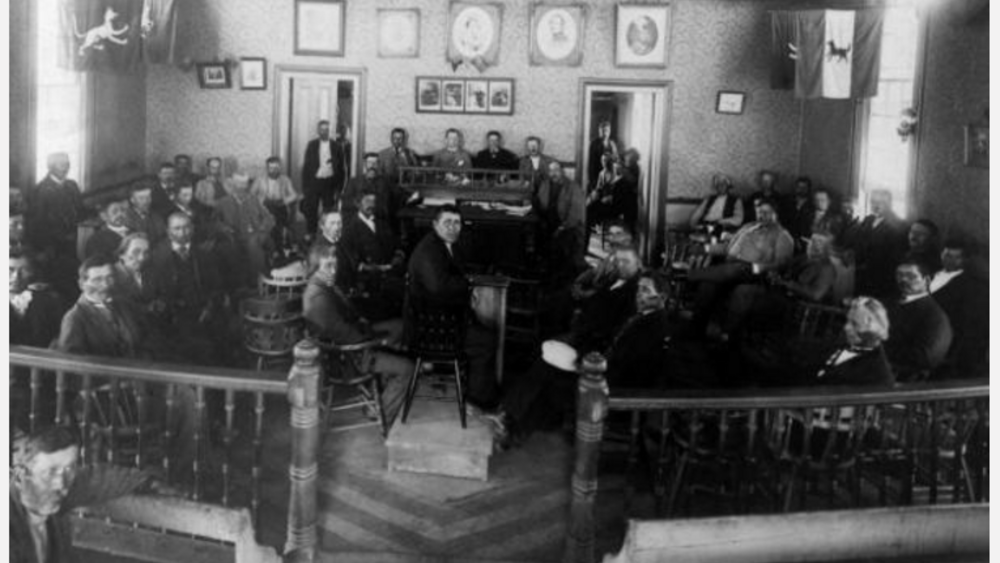
Political Autonomy and Sustainable Economy
A unique attribute of Indian political ways was noted early on by colonial observers. Indians, Indigenous Peoples more generally, were engaged in everyday political action as full participating community members. Every person had the right to be heard. Decisions were made through discussion and…

The Unintended Consequences of Disenrollment
For most of the modern tribal self-determination era, American Indian nations have emphasized inclusion. Starting in the early 1970s, higher tribal membership numbers equated to higher federal self-determination dollars. As tribes otherwise redoubled their efforts to reverse the destruction caused…
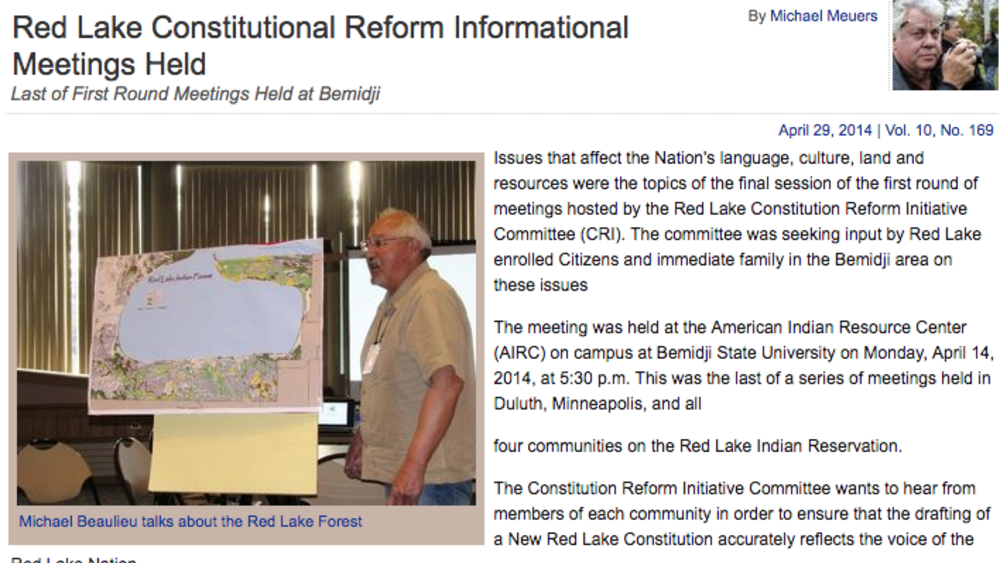
Red Lake Constitutional Reform Informational Meetings Held
Issues that affect the Nation's language, culture, land and resources were the topics of the final session of the first round of meetings hosted by the Red Lake Constitution Reform Initiative Committee (CRI). The committee was seeking input by Red Lake enrolled Citizens and immediate family in the…
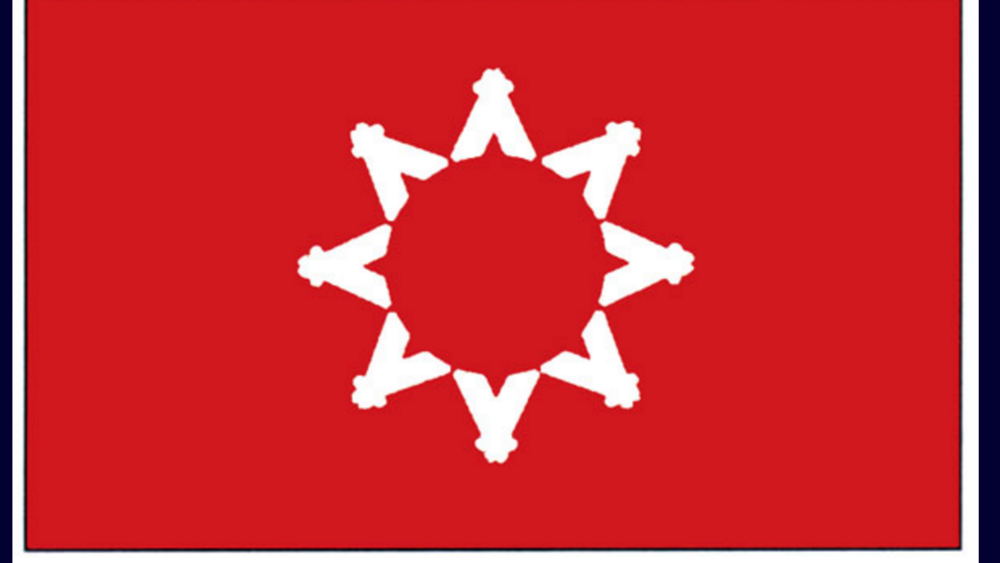
Teach youth about forms of government
Why aren’t the schools teaching about the IRA form of government? Why aren’t they teaching about the traditional tiospaye form of government? The disenchantment and what appears to be apathy or even seditiousness toward the Indian Reorganization Act system of government have become “normal” among…
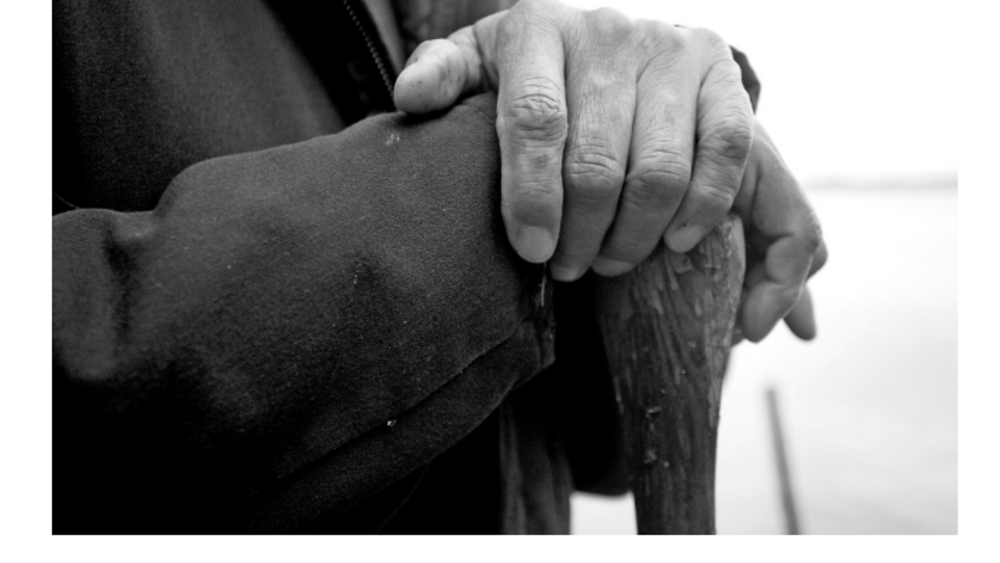
'We are getting stronger'
An economic, political and cultural renaissance is underway throughout Indian Country in the United States. It’s been going on for nearly a quarter-century. Whereas in the 1980s, economic growth on Indian reservations lagged far behind the rate of the U.S. economy, through the booming 1990s and the…
Pagination
- First page
- …
- 14
- 15
- 16
- …
- Last page
